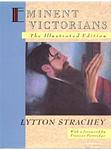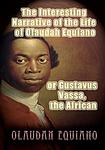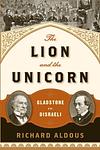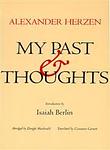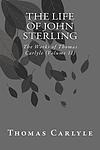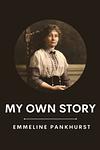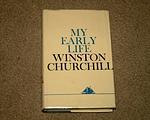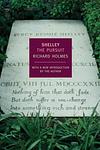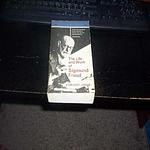The Greatest "Biography, United Kingdom" Books of All Time
Click to learn how this list is calculated.
This list represents a comprehensive and trusted collection of the greatest books. Developed through a specialized algorithm, it brings together 300 'best of' book lists to form a definitive guide to the world's most acclaimed books. For those interested in how these books are chosen, additional details can be found on the rankings page.
Genres
Biography is a genre of literature that focuses on the life story of a person, typically a historical figure or a celebrity. It provides a detailed account of the subject's life, including their upbringing, achievements, struggles, and personal relationships. Biographies can be written in various formats, including memoirs, autobiographies, and third-person narratives. This category of books offers readers an opportunity to gain insight into the lives of notable individuals and their impact on society.
Countries
Date Range
Reading Statistics
Click the button below to see how many of these books you've read!
Download
If you're interested in downloading this list as a CSV file for use in a spreadsheet application, you can easily do so by clicking the button below. Please note that to ensure a manageable file size and faster download, the CSV will include details for only the first 500 books.
Download-
1. The Life of Samuel Johnson by James Boswell
"The Life of Samuel Johnson" is a comprehensive biography that chronicles the life of one of the most prominent English literary figures of the 18th century. The book provides an in-depth account of Samuel Johnson's life, his literary works, and his significant contribution to English literature. It also offers a detailed portrait of his personality, his relationships, his struggles with depression and illness, and his views on a variety of subjects. The book is as much a biography of Johnson as it is a portrayal of 18th-century England.
-
2. Eminent Victorians by Lytton Strachey
"Eminent Victorians" is a biographical work that profiles four influential figures from the Victorian era. The book provides an in-depth look into the lives of Cardinal Manning, Florence Nightingale, Thomas Arnold, and General Gordon, exploring their respective contributions to British society during the 19th century. Through these portraits, the book offers a critical and often satirical analysis of Victorian values, institutions, and moral attitudes, challenging the idealized narrative of the era.
-
3. The Interesting Narrative of the Life of Olaudah Equiano by Olaudah Equiano
This autobiographical book tells the story of an African man who was kidnapped from his homeland as a child and sold into slavery. The narrative follows his life as he is transported across the Atlantic, sold to various masters, and eventually purchases his own freedom. The book provides a detailed account of the horrors of the Middle Passage and the inhumane conditions of slavery, while also serving as a powerful testament to the human spirit's ability to overcome adversity.
-
4. Disraeli by Robert Blake
This biography provides a comprehensive look at the life and political career of Benjamin Disraeli, one of the most influential figures in 19th-century British politics. The book explores his rise from a debt-ridden novelist to the prime minister of the United Kingdom, highlighting his charismatic personality, sharp intellect, and political acumen. It also delves into his unique approach to politics, his relationships with Queen Victoria and other influential figures, and his enduring impact on British conservatism.
-
5. Alan Turing by Andrew Hodges
This biography provides a comprehensive look at the life and work of a pioneering computer scientist and mathematician who played a crucial role in breaking the Enigma code during World War II. It delves into his groundbreaking contributions to the development of computer science, his tragic prosecution for homosexuality, and his enduring legacy in the field of artificial intelligence and computing. The book not only celebrates his scientific achievements but also examines the social context of his time, shedding light on the challenges he faced and the impact of his work on future generations.
-
6. The Last Lion by William Manchester
"The Last Lion" is a comprehensive biography of Winston Churchill, providing an in-depth look at his life, from his birth in 1874 to his death in 1965. The book covers Churchill's early years, his military service, his time as a journalist, and his political career, including his role as British Prime Minister during World War II. It also delves into his personal life, relationships, and struggles with depression. The book presents a nuanced portrayal of Churchill, highlighting his strengths, flaws, victories, and defeats.
-
7. My Past And Thoughts by Aleksandr Herzen
The book is a rich and vivid memoir by a prominent Russian intellectual and revolutionary who lived through a period of profound social and political upheaval. It combines personal narrative with philosophical reflections, offering a penetrating look at the author's life experiences, from his aristocratic upbringing to his involvement in radical politics. The work delves into the author's ideological development, his relationships with key figures of his time, and his observations on the social issues and political movements that shaped the 19th century. It is a testament to the author's profound engagement with the ideas of freedom, justice, and human agency in the face of an oppressive regime and a changing world.
-
8. The World Of Yesterday by Stefan Zweig
The book is a poignant memoir reflecting on the transformative events and cultural atmosphere of Europe before World War I, through the interwar years and into the rise of the Nazis. It captures the author's experiences of growing up in a vibrant pre-war Vienna, the intellectual richness and artistic achievements of the time, as well as the profound sense of loss as the world he knew disintegrated into chaos and totalitarianism. With a mix of nostalgia and despair, the narrative serves as a lament for the lost world of European culture and as a warning about the fragility of peace and the human cost of war.
-
9. Life Of John Sterling by Thomas Carlyle
This biography chronicles the life of John Sterling, a lesser-known literary figure of the 19th century, exploring his intellectual pursuits, personal struggles, and the friendships that shaped him. The narrative delves into Sterling's quest for truth and meaning amidst the religious, philosophical, and social upheavals of his time. Through a series of letters, personal reflections, and accounts from those who knew him, the book paints a portrait of a man deeply engaged with the intellectual currents of his era, yet often at odds with himself and his health. The biography is as much a meditation on the challenges of leading a life of the mind in a turbulent era as it is a detailed account of Sterling's own endeavors, failures, and achievements.
-
10. My Father And Myself by J. R. Ackerley
The book is a posthumously published memoir that explores the complex relationship between the author and his father. The narrative delves into the author's journey of self-discovery, particularly regarding his own sexuality, against the backdrop of his father's secretive life. It reveals the author's quest to understand his father after his death, unearthing surprising truths and a parallel hidden life of homosexual liaisons, which mirrors the author's own experiences. The memoir is a poignant reflection on identity, family secrets, and the search for honesty and connection.
-
11. Good Company by Frances Partridge
"Good Company" is a reflective memoir that offers an intimate glimpse into the life of a central figure within the Bloomsbury Group, an influential circle of intellectuals and artists in early 20th-century England. The book weaves personal anecdotes, diary entries, and letters to paint a vivid portrait of the author's friendships, loves, and the cultural milieu in which she lived. It provides an honest and often poignant exploration of the author's relationships with key literary and artistic figures of the time, their shared experiences during the tumultuous years of the World Wars, and the enduring impact of these relationships on her life and work. The memoir stands as a testament to the power of intellectual companionship and the profound influence of community on individual creativity.
-
12. Bad Blood by Lorna Sage
"Bad Blood" is a memoir about a woman's escape from a repressive childhood in post-WWII Britain. The author recounts her experiences growing up in a dysfunctional family with a philandering vicar for a grandfather and a depressed and distant mother. Despite the bleak surroundings, she manages to find solace in literature and education, ultimately earning a scholarship to university. The book is a testament to the transformative power of education and the author's fierce determination to escape her past.
-
13. Florence Nightingale by Cecil Woodham-Smith
This biography provides an in-depth look at the life and accomplishments of Florence Nightingale, a renowned nurse and social reformer. The author delves into Nightingale's personal life, her groundbreaking work in nursing during the Crimean War, and her relentless efforts to reform healthcare. The book also highlights the struggles she faced as a woman in a male-dominated society, her pioneering use of statistics in public health, and her lasting impact on modern nursing practices.
-
14. Say Nothing by Patrick Radden Keefe
This book is a gripping exploration of the Troubles in Northern Ireland, focusing on the disappearance of Jean McConville, a mother of ten who was abducted by the Irish Republican Army (IRA) in 1972. The narrative weaves together the stories of several key figures in the IRA, including Dolours Price, an IRA member who became disillusioned with the organization, and Brendan Hughes, a former IRA commander. The book delves deep into the political and personal complexities of the conflict, revealing the long-lasting trauma and moral ambiguities that continue to haunt those involved.
-
15. The Age Of Wonder by Richard Holmes
"The Age of Wonder" explores the scientific and cultural advancements of the late 18th and early 19th centuries, known as the Romantic Age. Richard Holmes delves into the lives and achievements of prominent figures such as Joseph Banks, Humphry Davy, and William Herschel, who revolutionized fields like astronomy, chemistry, and botany. Through vivid storytelling, Holmes captures the spirit of curiosity, imagination, and wonder that defined this era, highlighting the profound impact it had on shaping our modern understanding of science and the world.
-
16. Mrs. Humphry Ward: Eminent Victorian, Pre Eminent Edwardian by John Sutherland
This biography delves into the life and career of a once highly influential but now largely forgotten British novelist and social reformer from the late 19th and early 20th centuries. The book meticulously charts her rise to literary stardom, her role as a cultural and social commentator during the Victorian and Edwardian eras, and her involvement in various social causes, including women's education and opposition to women's suffrage. Through a detailed examination of her works, personal life, and the socio-political context of her time, the biography not only revives interest in her contributions but also provides insights into the complexities of her legacy, highlighting the tensions between her public influence and her conservative views on women's roles in society.
-
17. The Autobiography Of John Stuart Mill by John Stuart Mill
This autobiography provides an intimate look into the life of a prominent 19th-century philosopher and economist, known for his influential works on liberty, utilitarianism, and political economy. The book traces his intellectual development, including his rigorous and often oppressive education under his father's tutelage, his mental health struggles, and his eventual emergence as a leading thinker. It also delves into his personal relationships, particularly the profound influence of a female companion on his work and thought. The narrative offers insights into the author's views on society, his contributions to political and social theory, and his enduring impact on philosophical discourse.
-
18. My Own Story by Emmeline Pankhurst
"My Own Story" is an autobiography that chronicles the life and work of a prominent leader in the British suffragette movement, detailing her tireless struggle for women's voting rights in the early 20th century. The narrative offers a personal account of the political and social challenges faced by women activists, including the militant tactics employed, such as hunger strikes and civil disobedience, which often resulted in imprisonment. The author passionately articulates the motivations behind her activism, the sacrifices made, and the impact of her efforts on the eventual extension of suffrage to women, providing a compelling insight into the history of the fight for gender equality.
-
19. Parallel Lives: Five Victorian Marriages by Phyllis Rose
This book delves into the intimate dynamics of matrimony in the Victorian era through the examination of five distinct marriages among prominent literary and intellectual figures of the time. By exploring the relationships of these influential couples, the work reveals the complexities and challenges of Victorian marriage, including the negotiation of traditional roles, the impact of societal expectations, and the personal struggles and triumphs that defined these partnerships. The text serves as both a historical exploration and a commentary on the evolving nature of love, commitment, and companionship, offering a nuanced perspective on the private lives that influenced public personas and cultural legacies.
-
20. Footsteps by Richard Holmes
"Footsteps" is a captivating blend of biography and travel literature, where the author retraces the journeys of various literary figures to better understand their lives and works. Through his explorations, he follows in the footsteps of authors such as Robert Louis Stevenson, Mary Wollstonecraft, and Percy Bysshe Shelley, visiting the places they lived and wrote about. This immersive approach allows the author to delve deeply into the historical and emotional landscapes that shaped these writers, blending rich narrative with scholarly insights to offer a unique perspective on both the subjects and their settings.
-
21. The Hare with Amber Eyes: A Family's Century of Art and Loss by Edmund de Waal
This book is a family memoir that traces the journey of a collection of miniature Japanese sculptures, called netsuke, through generations of a wealthy Jewish family. The narrative delves into the family's rise to prominence in the late 19th and early 20th centuries, their survival during the Nazi regime, their post-war struggles, and their eventual decline. The author uses the netsuke as a lens to explore the themes of art, loss, and family legacy.
-
22. My Early Life by Winston Churchill
This memoir provides a captivating look into the early years of a man who would become one of the most influential figures in British history. The book covers his childhood, his experiences at various schools, his time in India and his early political career. It also provides an insight into his experiences as a war correspondent in the Boer War. The narrative is filled with personal anecdotes, reflections, and a good dose of humor, offering a unique perspective into the formative years of this renowned statesman.
-
23. Shelley: The Pursuit by Richard Holmes
"Shelley: The Pursuit" is a comprehensive biography that delves into the tumultuous life and radical works of the Romantic poet Percy Bysshe Shelley. The book meticulously documents Shelley's passionate pursuits in both his personal life and literary career, exploring his relationships, ideological struggles, and the societal controversies he sparked. Through detailed research and engaging narrative, the biography captures the essence of Shelley's fervent spirit and his relentless quest for truth and justice, shedding light on his poetic genius and the circumstances that shaped his brief, yet impactful life.
-
24. The Life And Work Of Sigmund Freud by Ernest Jones
This biography provides a comprehensive look into the life and theories of one of the most influential figures in the field of psychoanalysis. It delves into his early life, education, and the development of his groundbreaking theories on the human psyche, dreams, and the unconscious. The book also explores his personal struggles, relationships, and the controversies that surrounded his work, offering an in-depth view of his professional achievements and the lasting impact of his ideas on psychology and psychotherapy.
-
25. Untold Stories by Alan Bennett
"Untold Stories" is a collection of essays, diary entries, and recollections by a renowned playwright. It provides an insightful look into his life, experiences, and thoughts. The book is divided into two parts, with the first part focusing on his family history and the second part containing his personal reflections and observations about various topics, including art, architecture, and literature. It offers a unique perspective on the author's upbringing in Leeds and his later life in London, as well as his views on society and culture.
Reading Statistics
Click the button below to see how many of these books you've read!
Download
If you're interested in downloading this list as a CSV file for use in a spreadsheet application, you can easily do so by clicking the button below. Please note that to ensure a manageable file size and faster download, the CSV will include details for only the first 500 books.
Download
